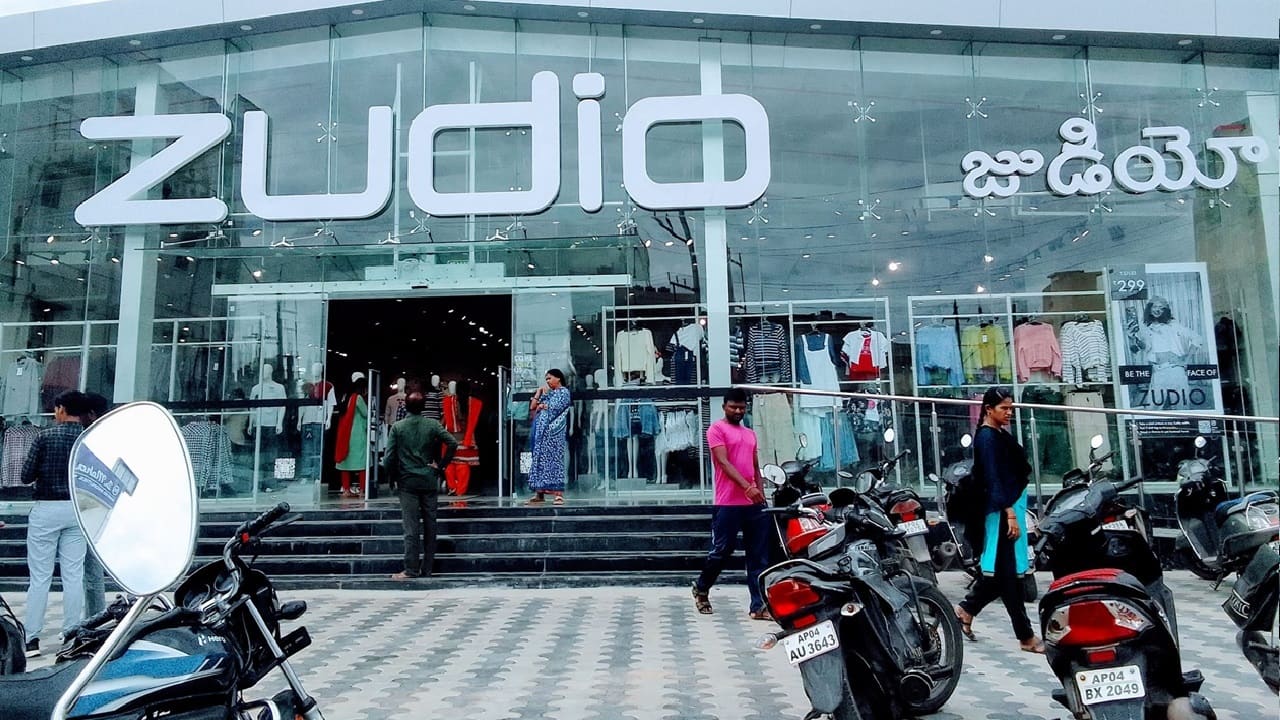Tata-owned Trent is beginning to feel the heat of a cooling fast fashion market from a high base seen post pandemic. After clocking its slowest growth since FY21 in the January-March quarter, the retailer has joined a growing list of global and Indian apparel brands — including Uniqlo, H&M, and Lifestyle — that are now grappling with a sharp deceleration in revenue growth, a reversal from the boom seen in the immediate aftermath of the pandemic. Trent’s stock tumbled 19 percent on April 7 after the company — which operates the Zudio and Westside chains — posted weaker-than-expected Q4 results.
Revenue for the March quarter rose 28 percent year on year (YoY) at Rs 4,334 crore, significantly lower than its five-year CAGR of 36 percent. This was also the slowest YoY growth since March 2021, when the pandemic disrupted operations and sales rose just 7 percent. The Tata Group firm’s sales growth reached its highest in June 2022, increasing 405 percent YoY.

While Trent has consistently outpaced peers in revenue growth and store expansion, analysts now say that the broader macro pressures are catching up, particularly in metros and Tier-1 cities, where demand is stagnant amid inflationary pressures and slow income growth. "In our view, after delivering strong double-digit like-for-like growth ..
. the high base effect is beginning to moderate Trent's growth momentum," Abhijeet Kundu, Analyst at Antique Stockbroking, wrote in a note. Fast fashion brands, which had enjoyed a post-pandemic surge with high double- and even triple-digit growth, started seeing demand taper off in 2024 — especially in urban centres, which contribute a major chunk of overall sales.
For instance, Uniqlo and H&M saw their India sales grow by 60 percent and 40 percent, respectively, in FY23, but that pace halved in FY24, falling to 31 percent for Uniqlo and just 11 percent for H&M, according to MCA filings accessed by Tofler, seen by Moneycontrol. These brands also saw their bottom lines battered by the shift in discretionary spending patterns. Slowing growth of fast fashion brands over the last three years As retail consumption stabilises post pandemic, the age of easy growth may be over, according to analysts.
"Post Covid people started spending quite a bit. They dipped into their savings to make purchases, and overall consumption went up. Even now, higher income groups continue to spend on experiences, hospitality, not impacted by inflation.
The bigger challenge is the middle-income segment. Wage growth has been modest over the past 1–2 years, which is impacting consumption. That's why brands like Zudio are possibly struggling a bit.
Spending is also a sentiment, consumers will spend if they feel comfortable," said Praveen Govindu, Partner at Deloitte. "We believe growth will correct and will be triggered by a mix of regulatory actions (for example, income taxes) and a shift in consumer sentiment. Organised retail has consistently outperformed overall retail by 10 percent and still has significant headroom," said Bharat Mimani, Managing Director & Partner, BCG.
Shifting patterns Urban consumers — who have traditionally driven demand for branded, trendy apparel with frequent purchases and higher average spends — are now tightening their wallets. In contrast, Tier II and III cities have emerged as newer growth engines. These markets are seeing rising incomes and strong consumption among Gen Z shoppers, whose aspirations and fashion appetite are driving the penetration of organised retail and value-led formats.
As a result, brands like Zudio, V-Mart, and Reliance’s Yousta are expanding aggressively in these markets, betting on continued momentum outside the metros, according to an industry report by Deloitte and Retailers Association of India (RAI), published in February this year. There’s also a growing appetite for sustainable and ethically produced apparel, which brands will increasingly need to factor into both design and sourcing decisions. "Gen Z isn’t loyal to brands in the traditional sense—they connect with stories, values, and authenticity.
If a brand’s principles align with theirs, they’ll engage. Otherwise, they’ll move on. That’s a real challenge for legacy brands.
Businesses need to rethink everything—from product design and communication to marketing strategies," Govindu added. But navigating this shift comes with risks. Elara Capital has flagged concerns around slower-than-expected store additions, price wars among value retailers, and the challenge of staying ahead of fast-changing fashion preferences.
"Gen Z is now India's biggest end consumer segment and is directly or indirectly influencing 45–48 percent of lifestyle purchase decisions, making them the key focus of leading apparel and retail brands Almost two-thirds of GenZ consumers research online channels (marketplaces and brand websites) for product and brand discoverability and reviews before purchasing a product. At the same time, 63 percent make their purchase online," the report added..
















